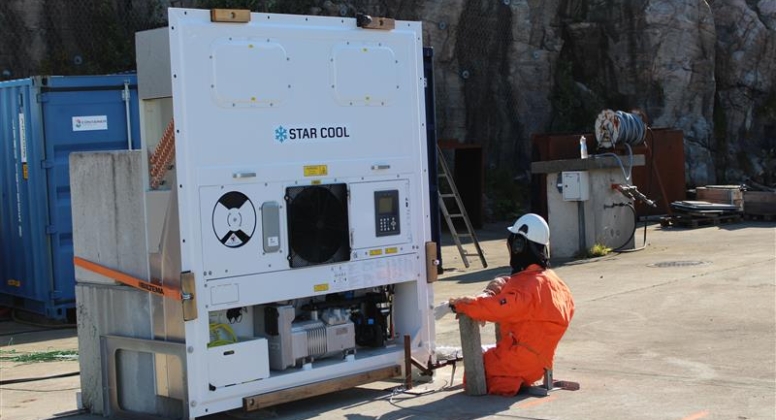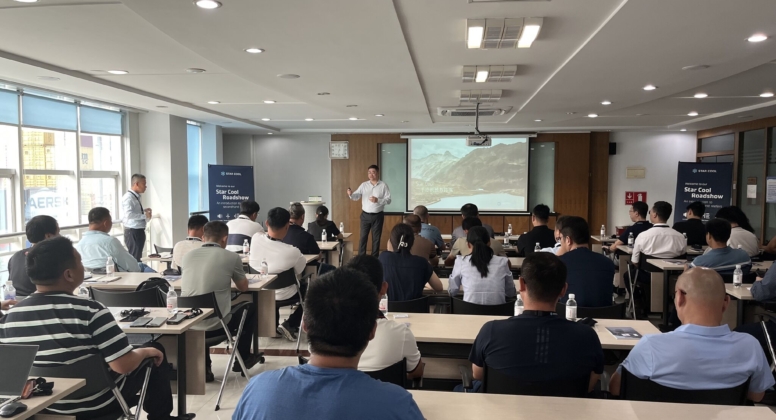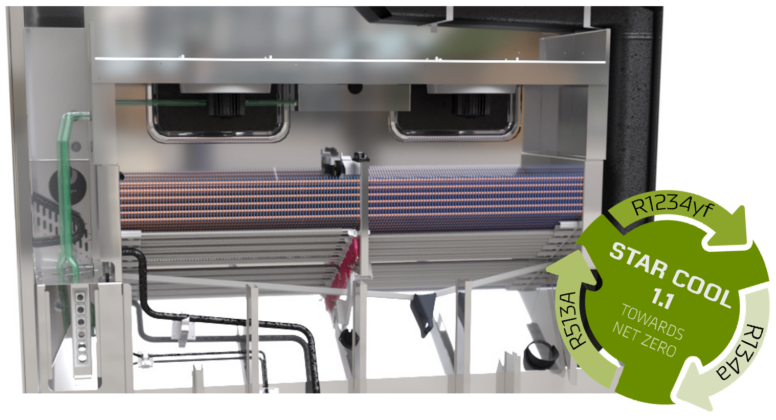Sustainability at the Core: The Triple Refrigerant Solution of Star Cool 1.1
As the global focus on reducing carbon footprints intensifies, the refrigerated container industry faces pressure to enhance sustainability practices. Leading this change is Star Cool 1.1, a product that sets a new industry benchmark in reducing impact on global warming. Building on its legacy, MCI introduces the Star Cool 1.1 with a pioneering triple refrigerant solution, positioning operators to navigate the evolving regulatory landscape, of which the recent developments in the US may just be the beginning.
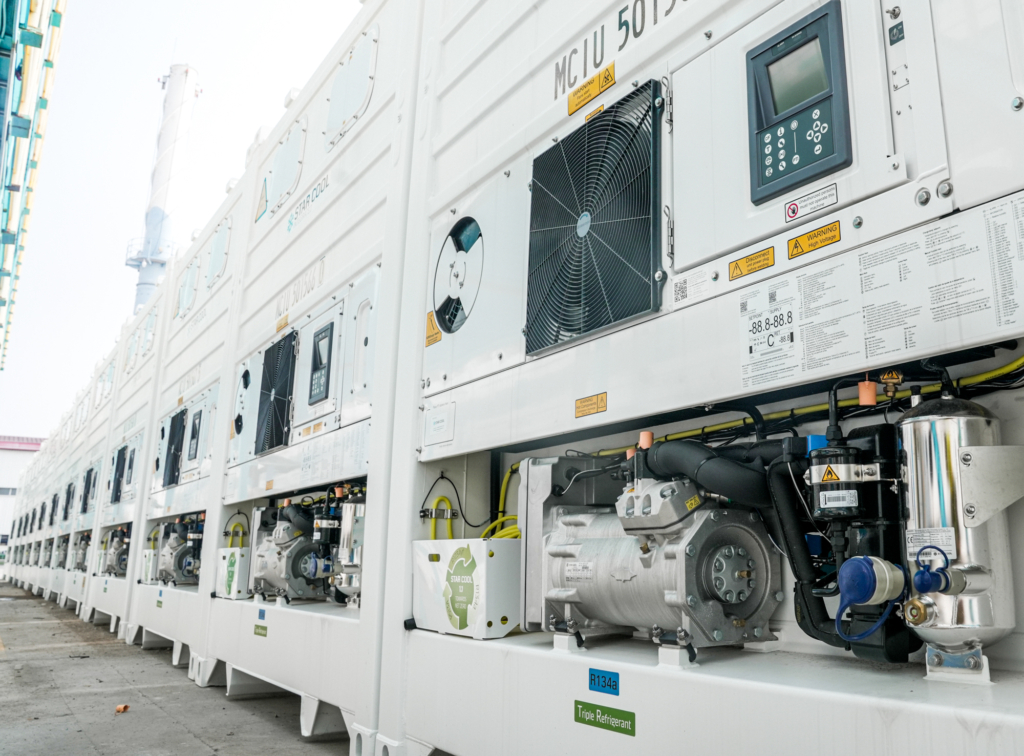
Climate-Friendly Refrigerants
Central to Star Cool 1.1’s sustainability approach is its compatibility with the ultra-low Global Warming Potential (GWP) refrigerant R1234yf, which boasts a GWP of just 0.5. This marks a significant environmental advancement over traditional refrigerants like R134a and R513A. The Star Cool 1.1 allows seamless switching between these refrigerants without requiring software or hardware modifications, ensuring compliance with changing regulations while avoiding additional costs or disruptions.
Customers purchasing Star Cool 1.1 have two options:
- Star Cool 1.1 Triple Refrigerant: This option enables operators to switch freely between R134a, R513A, and R1234yf, adhering to global A1 and A2L refrigerant standards for maximum flexibility.
- Star Cool 1.1 Triple Refrigerant Ready: Pre-charged with R134a or R513A, this version can be upgraded to use R1234yf, providing a cost-effective way to mitigate future refrigerant-related risks.
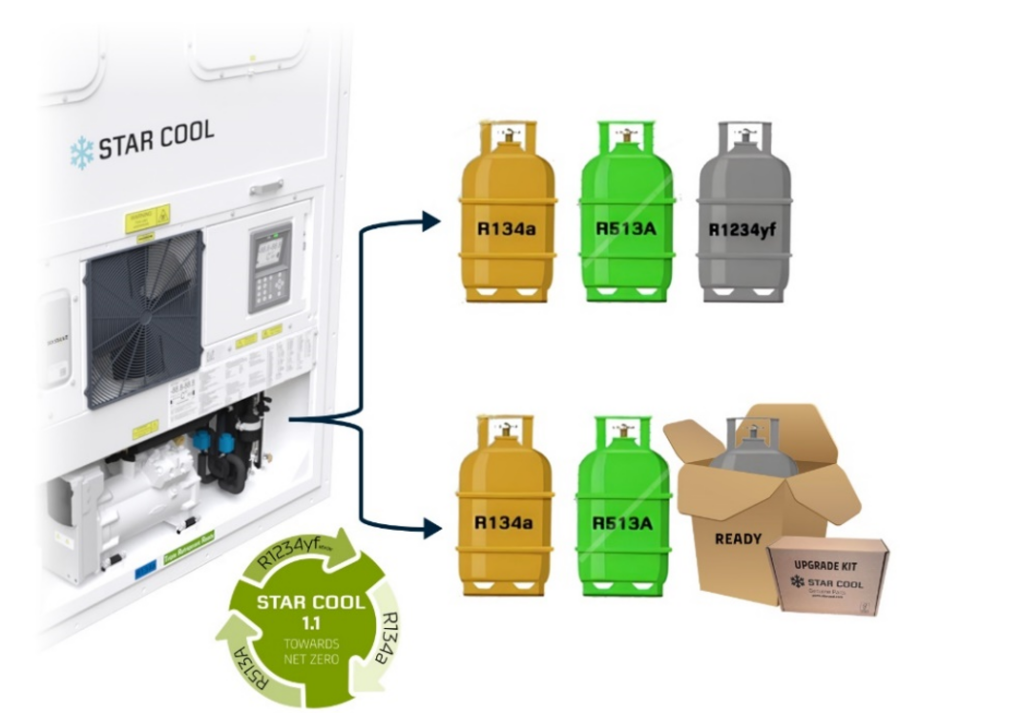
Reducing Greenhouse Gas Emissions
The Star Cool 1.1 significantly reduces greenhouse gas emissions by utilizing low-GWP refrigerants like R1234yf and minimizing refrigerant leakage. Operators can expect a reduction of approximately one ton of CO2 equivalent per year, supporting global climate change efforts while meeting regulatory requirements.
Future-Proofing with Triple Refrigerant Compliance
As the industry phases out HFC refrigerants, the Star Cool 1.1 ensures operators are prepared for the future. The ability to utilize R1234yf, already standard in automotive air conditioning systems in many regions, ensures the Star Cool 1.1 remains compliant with future environmental standards while maintaining operational efficiency.
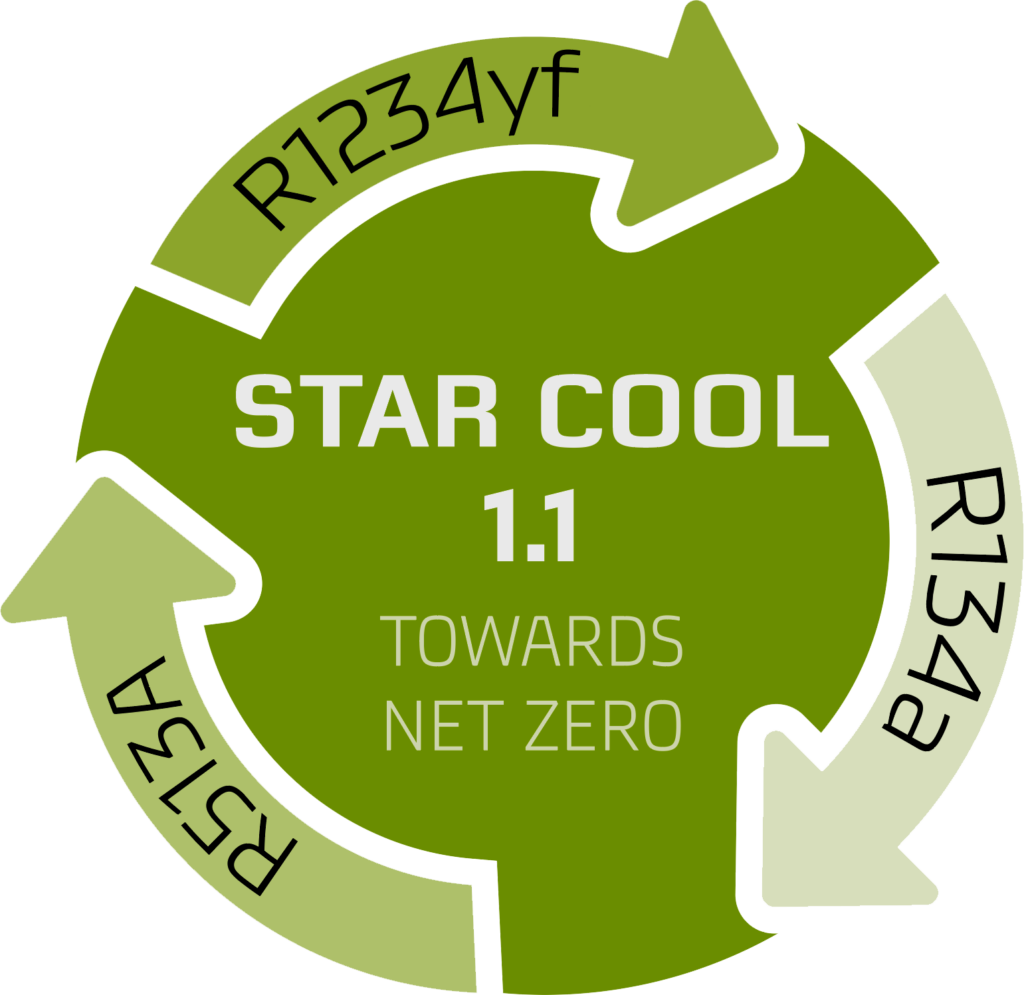
You can always recognize the new Star Cool 1.1 by it’s decal, shown here.
Looking Ahead: A Sustainable Future with Star Cool 1.1
The Star Cool 1.1 represents a significant advancement in sustainability for the refrigerated container industry. With its innovative triple refrigerant solution, it reduces greenhouse gas emissions while offering flexibility and future-proofing for evolving global regulations. MCI’s commitment to innovation is evident in the Star Cool 1.1, making it the ideal choice for operators focused on long-term sustainability and reliability.
Safe and Certified – an ISO operator guide
- Environmental Impact: Utilizes R1234yf refrigerant, which has a significantly lower Global Warming Potential (GWP) than the commonly used R134a, reducing environmental impact and enhancing sustainability credentials.
- Safety Compliance: The reefer container design complies with ISO 20854, ensuring safety standards for thermal containers using flammable refrigerants are met. This includes rigorous Operational Modes Risk Assessment (OMRA) to identify and mitigate potential risks. Operator responsibilities to support safe operation, review processes and training.
- Enhanced Design Features: Highlights of the design include specific modifications to manage the mildly flammable nature of R1234yf, such as eliminating sources of ignition within the container and controlling maximum surface temperatures.
- Advanced Testing: Comprehensive testing and simulations confirm that the reefer design adheres to safety protocols concerning flammability and potential toxicity, including extensive fire tests and dispersion simulations to assess and mitigate risks associated with the refrigerant.
- ISO Certification: MCI has obtained an Approval Letter as per ISO 20854 standards, demonstrating that the design has been rigorously evaluated and meets international safety standards.
